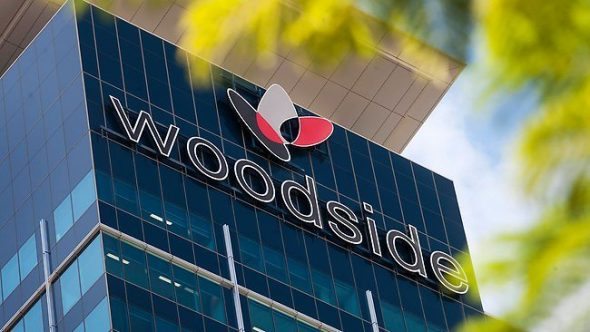
In a week where climate change dominated global headlines with the UK Parliament’s declaration of a climate emergency and school strikers taking to the streets in over 500 locations worldwide, corporate Australia was also facing increasing scrutiny on climate change.
Woodside’s annual general meeting on Thursday 2 May 2019 in Perth was no exception, with question time taken up by shareholders’ climate concerns. Yet when asked if Woodside, Australia’s largest natural gas producer, would align its strategy with the Paris Agreement target of keeping global warming to 1.5 degrees of pre-industrial levels, the answer was a flat “no”.
“Our baseline is the 2 degree scenario. Let’s be clear – the world has signed up for 2 degrees. 1.5 degrees is just a recent report that has been recommended but not accepted by anybody,” commented CEO Peter Coleman.
The report in question is not ‘just’ any report. Produced by the world’s leading Intergovernmental Panel on Climate Change – a United Nations body – it shows the stark and devastating difference between 1.5 and 2 degrees to our planet. As a shareholder pointed out, the extra half degree is expected to expose tens of millions more people to life-threatening heatwaves, water shortages and coastal inundation, and spell the death of the Great Barrier Reef.
The IPCC’ s report and many others, including those published in recent years by the International Energy Agency and the World Energy Council, also make clear that any production from new oil and gas fields, beyond those already in production or development, is incompatible with limiting warming to 1.5 degrees. Put simply, there’s absolutely no room for new coal, oil and gas reserves.
It’s a finding that Woodside’s board and leadership have apparently chosen to ignore. For in the next three years (2019 to 2022), Woodside and its subsidiaries will spend more than AU$283 million on offshore oil and gas exploration activities for the petroleum exploration permits it holds.
Out of line, out of time
Which is why the recent Market Forces report “Out of line, out of time” named Woodside as one of the companies acting out of line with keeping temperature rises to a safer 1.5 degrees.
The trillion-dollar Norwegian Sovereign Wealth Fund has already blacklisted Woodside as an uninvestable company, primarily because it has no credible decarbonisation plan in line with the Paris Agreement. Woodside’s share price has slumped significantly as a result.
When shareholders reiterated the importance of the 1.5 degree threshold, Coleman finally admitted that Woodside’s business model could not be supported under this scenario. “Because it is 1.5 rather than 2 degrees there are a handful of scenarios where gas becomes less in the energy mix over time.”
Political donations
Woodside is Australia’s biggest fossil fuel company donor to political parties. Shareholders at the AGM asked why over $200,000 needed to be given to the major political parties when other big companies such as Rio Tinto and BHP had decided to not donate anymore.
“We are part of political party business forums. We have representation in Canberra. That does give us good access to politicians on all sides of the political spectrum. We think it’s a worthwhile investment. It’s important we are heard on our views on appropriate policies for the communities in which we operate,” chairman Richard Goyder told shareholders.
With Woodside and Santos last year donating almost half a million dollars to political parties between them, and both companies banging on about the importance of “representation in Canberra”, it’s hardly surprising that Labor last month announced it would stump up a $1.5 billion subsidy to open the Northern Territory to new gas projects if it wins the upcoming federal election.
Government handouts
Woodside, which made US $1.5 billion in profits this past year, was also recently revealed to have asked Australia’s export credit agency, EFIC, to subsidise a new oil and gas project off the coast of Senegal in West Africa.
“How does Woodside reconcile this large oil project, set to open a huge new fossil fuel resource, with its climate change policy that recognises the scientific consensus on climate change?” asked another shareholder.
Coleman responded that they were “looking for diversification in Woodside’s portfolio.”
Take action
If you’re with one of the big super funds, it’s likely you have shares in Woodside. Tell your super fund you don’t want them investing in companies like Woodside that are putting the planet in peril.
